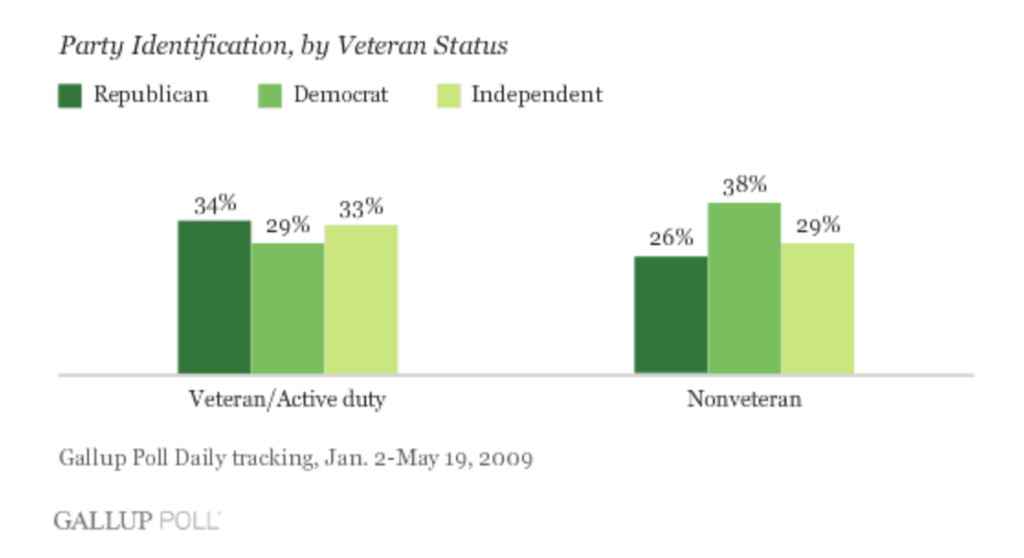I was at the gym this morning, where I overheard a guy make a comment to someone else: “He committed treason! I’m not a Democrat; I served my country.”
I don’t know who they were talking about. But the “I’m not a Democrat; I served my country” part stuck in my craw during my workout.
Clearly, this guy assumed that Democrats don’t serve in the military.
I suppose I could have confronted the guy (a very big, intimidating guy, I might add) about it. Perhaps I could have been charming enough to actually do that well. Perhaps I could have learned something. Perhaps we both could have learned something.
Or perhaps I just chickened out.
I actually think it was not an appropriate place to engage in a political conversation. That’s certainly not what I was there for.
Anyway… I looked up the statistics on military service and political party. From news.gallup.com, the upshot is this:

So, yes, veterans tend to be Republicans more than Democrats. But not by as much as the guy at the gym probably thought. Certainly it wasn’t nearly as clear-cut if you include independents (I’m assuming the guy was Republican).
Which brings me to the real point of this post.
Very often, in any kind of a heated debate or argument, I hear people say things like:
“How could they think X if they do Y?”
“How can they think that could work?”
“What are they thinking?”
Often, my response is: “That’s not a bad question to be asking.”
But, in reality, they’re not usually posed as actual questions. They’re statements, disguised as questions. What they really meant by the above ‘questions’ was:
“They don’t really think X, or they wouldn’t do Y.”
“That won’t work, and they’re stupid if they think it will.”
“They’re not thinking.”
But if we rephrased the ‘questions’ slightly, in such a way that they assume validity from the get-go, they might sound like this:
“How is it that some intelligent people think X if they do Y?”
“How is it that reasonable people can think that could work?”
“I wonder how they came to this conclusion?”
…and all of these could be followed up with an implicit “What am I missing?”
If the “questions” are actual questions — that assume validity — then there’s value in them. Otherwise, they’re just statements in the form of questions, meant to invalidate something someone else did or said. This never gets anywhere.